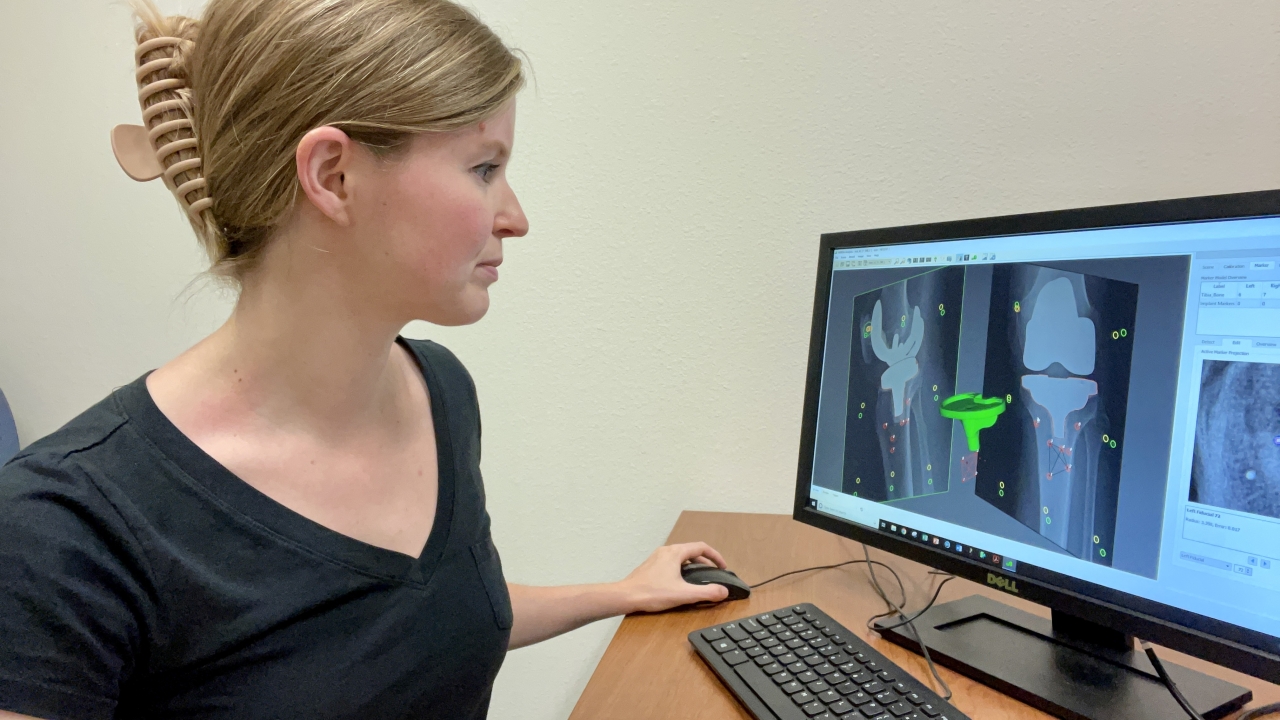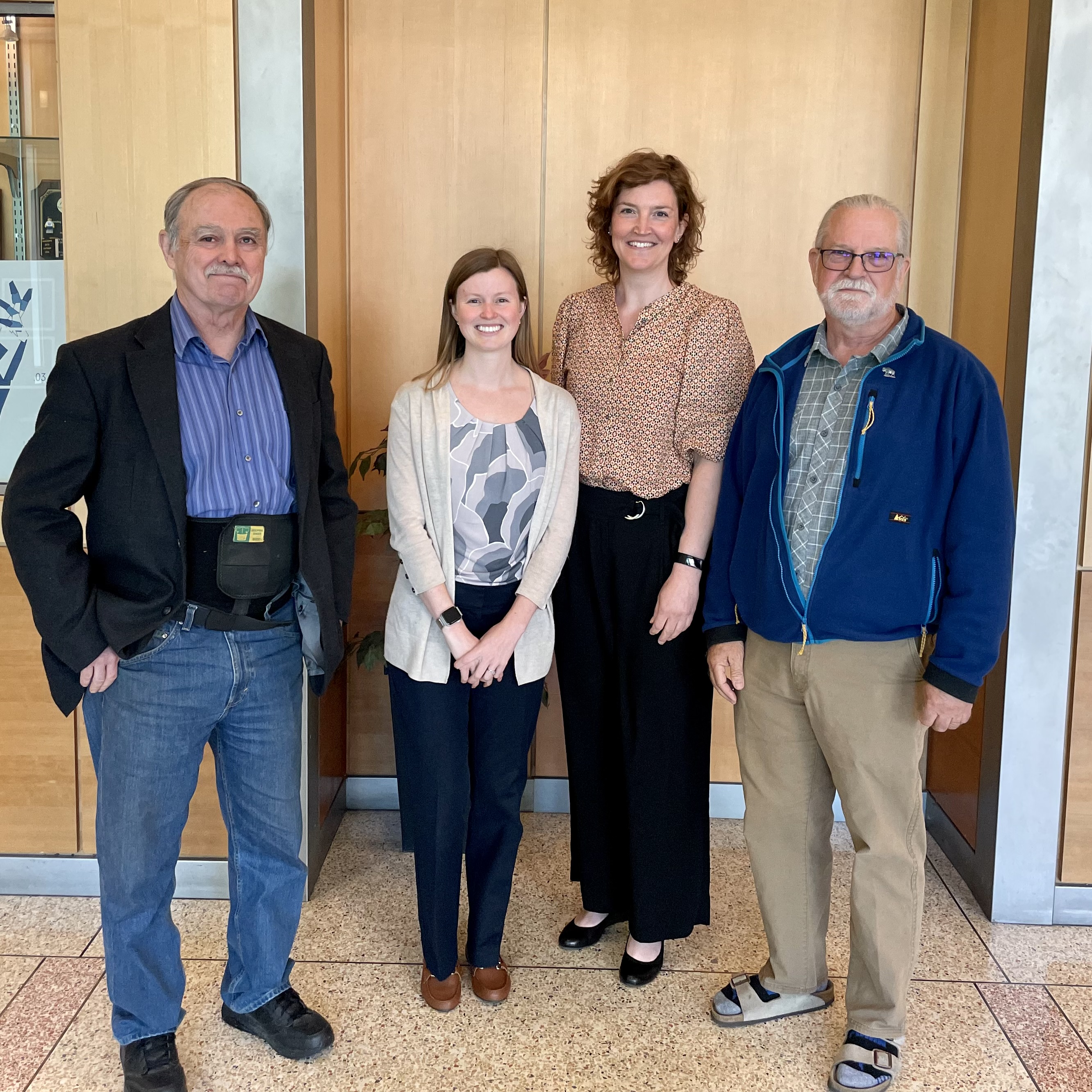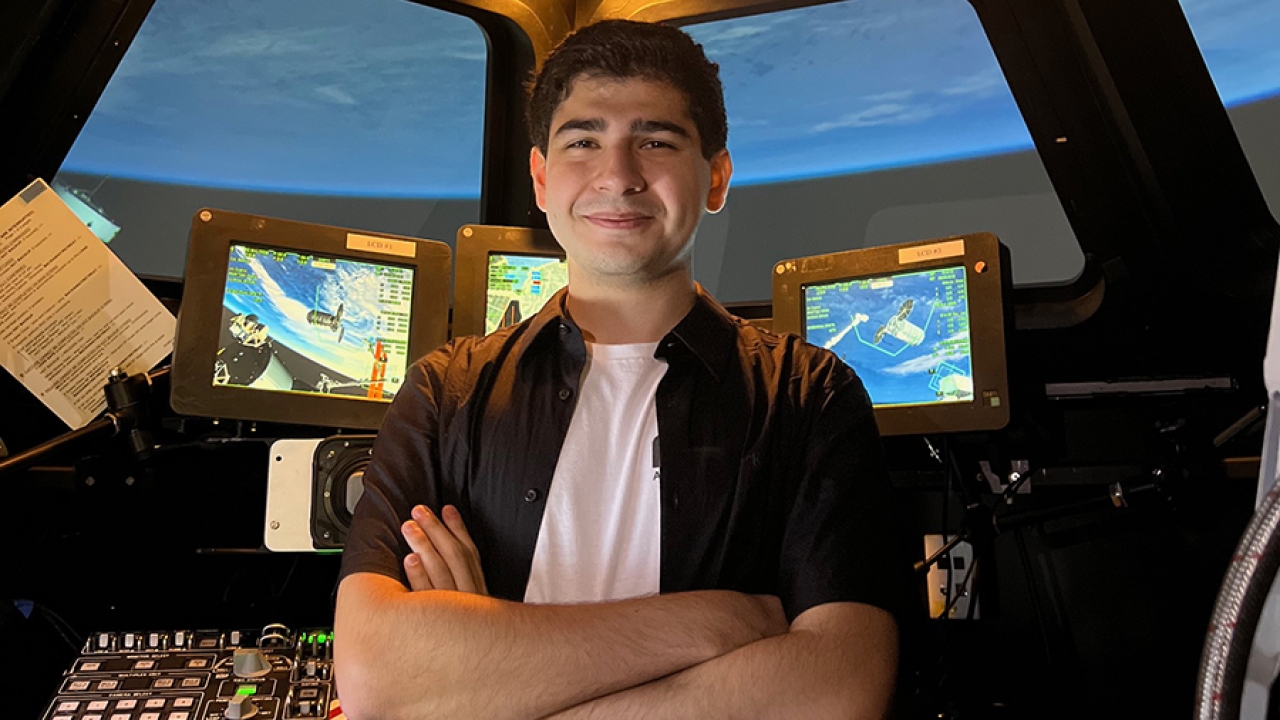
Alumni Spotlight: Abby Niesen, M.S. '21, Ph.D. '23
Recent biomedical engineering alumna makes her mark on international scale
UC Davis doctoral graduate Abby Niesen, M.S. '21, Ph.D. '23 is arguably one of the most productive doctoral students in the history of the Department of Biomedical Engineering and quite possibly the College of Engineering, according to faculty who have been associated with UC Davis for nearly 50 years.
"I've had many graduate students throughout my tenure at UC Davis," said Distinguished Professor Emeritus Maury Hull. "[But] Abby is the top when it comes to research productivity. The quality of her research, from the questions being asked to the skill in executing the work, has been exceptional."
Before she graduated in 2023, Niesen had successfully published nine peer-reviewed research papers as the lead author in top biomechanics and orthopedic journals and gave numerous talks at international conferences. She also was a Professors for the Future fellow, an Achievement Rewards for College Scientists Foundation fellow, a UC Davis Grad Slam finalist, and taught an undergraduate course in manufacturing for several quarters.
When asked how she does it all, Niesen said she makes sure to "celebrate the victories along the way, no matter how small."
"Any time we finished a specific point in imaging or collecting data, we'd go out and celebrate," she said. "And ice cream is one of the top things. I love going to the Davis Creamery. I'm a frequent flier there for sure!"
Finding her calling while climbing
Niesen's interest in biomedical engineering came when she volunteered at her local rock-climbing gym.
Niesen, who earned her undergraduate degree in civil engineering, had just left her job at a structural engineering firm having realized that, while she enjoyed engineering, she wasn't as passionate about structures and soil mechanics. At the rock-climbing gym, she worked with adaptive climbers, some of whom were climbing with prosthetics. Niesen knew then that the interface of humanity and engineering was what she wanted to study.
"Through climbing I started getting really interested in human injury, repair, rehabilitation, and assistive devices and discovered the field of biomechanics," she said. "Having a background in civil engineering I was able to apply a lot of the principles I already knew but to an interface that I was more interested in, which was people."
Drawn to Interdisciplinary Endeavors
Niesen enrolled at UC Davis and got connected to the UC Davis Orthopaedic Biomechanics Laboratory. She was drawn to the group's multidisciplinary nature of providing students and researchers with both engineering and strong clinical experiences. Niesen's Ph.D. advisors were Hull and orthopedic surgeon Dr. Stephen Howell.
"The fact that our lab works directly with surgeons, that was a really big draw for me," she said. "The combination of the engineering and the clinical environment was a perfect blend."
At the interdisciplinary lab, Niesen conducted a two-year longitudinal clinical study of 70 total knee replacement patients. Niesen personally attended every one of their surgeries and conducted the 300-plus follow up exams for all patients to collect pertinent data.
"One of the reasons I chose UC Davis, and why I pursued the research project that I did, was that I wanted to be out in the field, which in this case is the operating room," she said. "Through this project, I got to live out that dream."
A Revelation Found in Errors
During her study, Niesen made a breakthrough discovery — one that has attracted international attention and has been the source of her prolific research. It is a discovery that Niesen found not by focusing on what was going right; but rather, by focusing on errors.
Niesen discovered that for decades orthopedic researchers have not been reporting systematic errors when collecting data pertaining to the efficacy of a total knee replacement surgery, specifically when calculating how much an implant moved in relationship to the bone post-surgery. Niesen saw this as a huge flaw because every system has some level of error; and, by not reporting the error, it prevented researchers from properly analyzing and comparing data.
"When I found it, my initial reaction was, I must be doing something wrong because I thought there's no way people wouldn't be reporting something like this," she said.
Research Receives International Attention
Niesen contacted experts in the Netherlands who developed this methodology and started asking questions. From that, she not only unearthed a research question that would be the focus of her dissertation, but she also captured the attention of and formed strong mentorships with global experts in her field. For example, international orthopedic expert Petra Heesterbeek flew from the Netherlands to attend Niesen's defense of her dissertation. In addition, Senior Researcher at the Department of Orthopaedics at Leiden University Medical Center Bart Kaptein is a secondary author to one of Niesen's papers and was part of her master's thesis committee.
"Being a newcomer to the field I had a fresh perspective, I realized something other people in the field just didn't realize was missing," said Niesen. "When I dug deeper and realized I was right, my mindset immediately shifted to this is something I need to bring to light for the research community."

In April 2023, Niesen was invited to give three presentations about her research at the International Radiostereometry Meeting, the most well-respected conference in that field held in the Netherlands.
In her talk, she encouraged researchers to report their measurement errors and proposed that the International Organization for Standardization, or ISO, revise its guidelines to require error measurements. She also was one of only five people in the world to be nominated for the meeting's best presentation due to its high clinical relevance. After the conference, Niesen was invited to be part of a special committee tasked with updating the ISO standard. Serving on the committee is by invitation only and is primarily composed of the most senior leaders in the field.
"The results of Abby's research can directly be used and implemented by RSA [radiostereometric analysis] researchers all over the world," said Heesterbeek. "Her research and the outcomes are being used by the International RSA Society in a revision of the ISO guidelines. Improving these guidelines will further enhance the quality of RSA studies with the ultimate goal to improve implants for patients."
Proud of Perseverance
Of all the many things that Niesen has accomplished during her time at UC Davis, the thing she says she is most proud of was her perseverance.
"Throughout the five years of my Ph.D., I applied to more fellowships than I can count. I received quite a few rejections over the years, but this past year I was able to secure funding to cover most of my research," she said. "I'm proud that I never gave up hope and that I kept trying."




